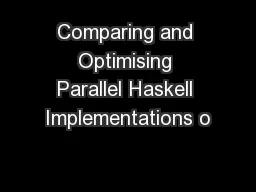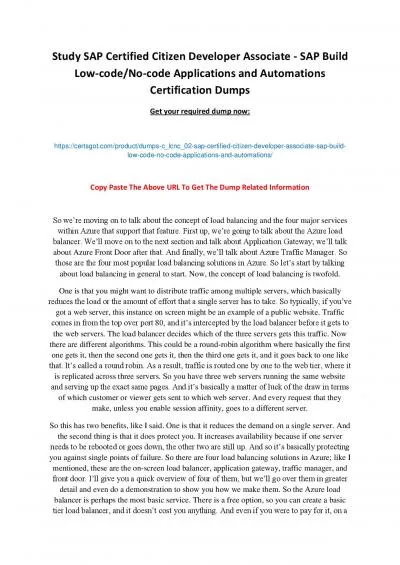PPT-From High-level Haskell to Efficient Low-level Code
Author : cheryl-pisano | Published Date : 2019-12-05
From Highlevel Haskell to Efficient Lowlevel Code Geoffrey Mainland Microsoft Research Cambridge Big Techday 6 June 14 2013 2 RBS 6202 Virtex7 FPGA Tesla K20 USRP
Presentation Embed Code
Download Presentation
Download Presentation The PPT/PDF document "From High-level Haskell to Efficient Low..." is the property of its rightful owner. Permission is granted to download and print the materials on this website for personal, non-commercial use only, and to display it on your personal computer provided you do not modify the materials and that you retain all copyright notices contained in the materials. By downloading content from our website, you accept the terms of this agreement.
From High-level Haskell to Efficient Low-level Code: Transcript
Download Rules Of Document
"From High-level Haskell to Efficient Low-level Code"The content belongs to its owner. You may download and print it for personal use, without modification, and keep all copyright notices. By downloading, you agree to these terms.
Related Documents














